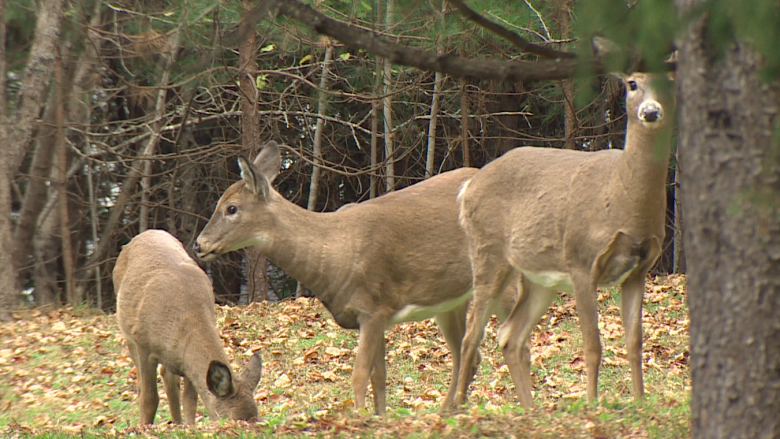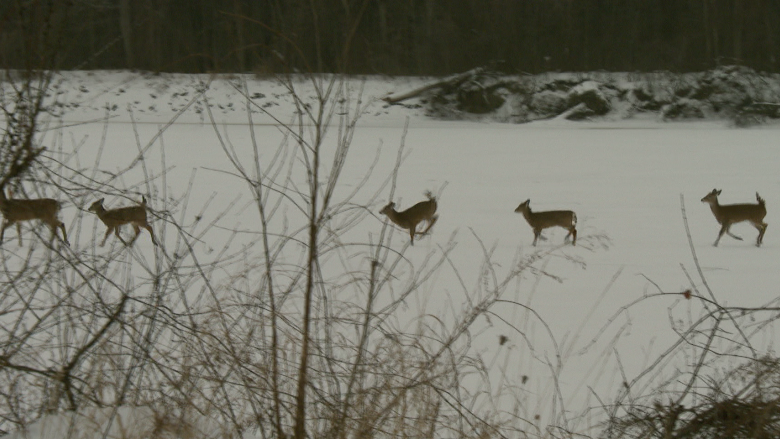Deer population is 'catastrophically low,' biologist says
The Department of Natural Resources may consider making changes to the 2016 deer harvest.
It all depends on the severity of the upcoming winter and its impact on the white-tailed deer population.
Alterations could include further limiting of licenses, to the possibility of cancelling the hunt altogether depending on the severity of the winter.
"We can close seasons," said DNR biologist Kevin Craig. "We can control the season length and we can control the number of female or antlerless deer that are harvested and we can control the methodology that we use to hunt them to reduce hunters' success. Those are the tools that are available to us."
Craig attributes the lowest number of deer harvested in 42 years to the previous two New Brunswick winters that were particularly harsh.
"Certainly last year's winter was the worst we've had in New Brunswick in probably 40 years," said Craig.
"And it wasn't just that there was a lot of snow, but that in terms of winter severity ... that it lasted so long."
Hal Wood has been hunting in the New Brunswick forests since the 1940's.
He says he can remember when hunters could be choosy about the size of buck they shot, but those days are over.
"The last time, I hunted - the last couple of times I hunted - we didn't see deer," said Wood.
Wood supports a suspension of the season if it means giving the species a chance to rebound.
Clear cuts concern some
But he suspects there is more hurting the deer population than just weather.
"Clear cuts are decimating deer," said Wood. "They have no food, they have no shelter. There's no deer yards left for them to shelter in when the winters get back."
"Encourage the companies that have leased crown land to plant more than one species, throw some hardwood in there, give the deer some feed to survive," said Wood.
Wildlife biologist Rod Cumberland is echoing that concern, saying the province is facing a wildlife biodiversity issue.
He's worried data to be released in the coming weeks could show the deer herd is in the worst shape it has been in a century.
Cumberland spoke out after preliminary numbers released by the Department of Natural Resources showed a 38 per cent decrease in the number of deer taken in this year's fall hunt.
That would appear to be the steepest decline since 1973.
The preliminary numbers for this year's hunt show 4,313 deer were taken. That's down from 6,935 reported in 2014.
Cumberland, a wildlife instructor at the Maritime College of Forest Technology and a former biologist with the Department of Natural Resources, says many people are now anxious to see the final numbers — which will not be available until after Christmas.
It would be catastrophic, says Cumberland, if that data shows the actual harvest this fall was lower than in 1973.
"And all of a sudden, guess what?" said Cumberland.
"This is a big story."
Numbers declining over 30 years
Although there are fluctuations, Cumberland says the overall trend over the past 30 years has been "downward progression" in the size of the province's deer population.
He said he blames reduced cover for the deer and a reduction of food supply caused by herbicide programs in the forestry sector.
"Across most of the province deer are at a historic, I mean catastrophically, low level," said Cumberland.
The Department of Natural Resources is working to respond to CBC News' requests for an interview about the deer population.




